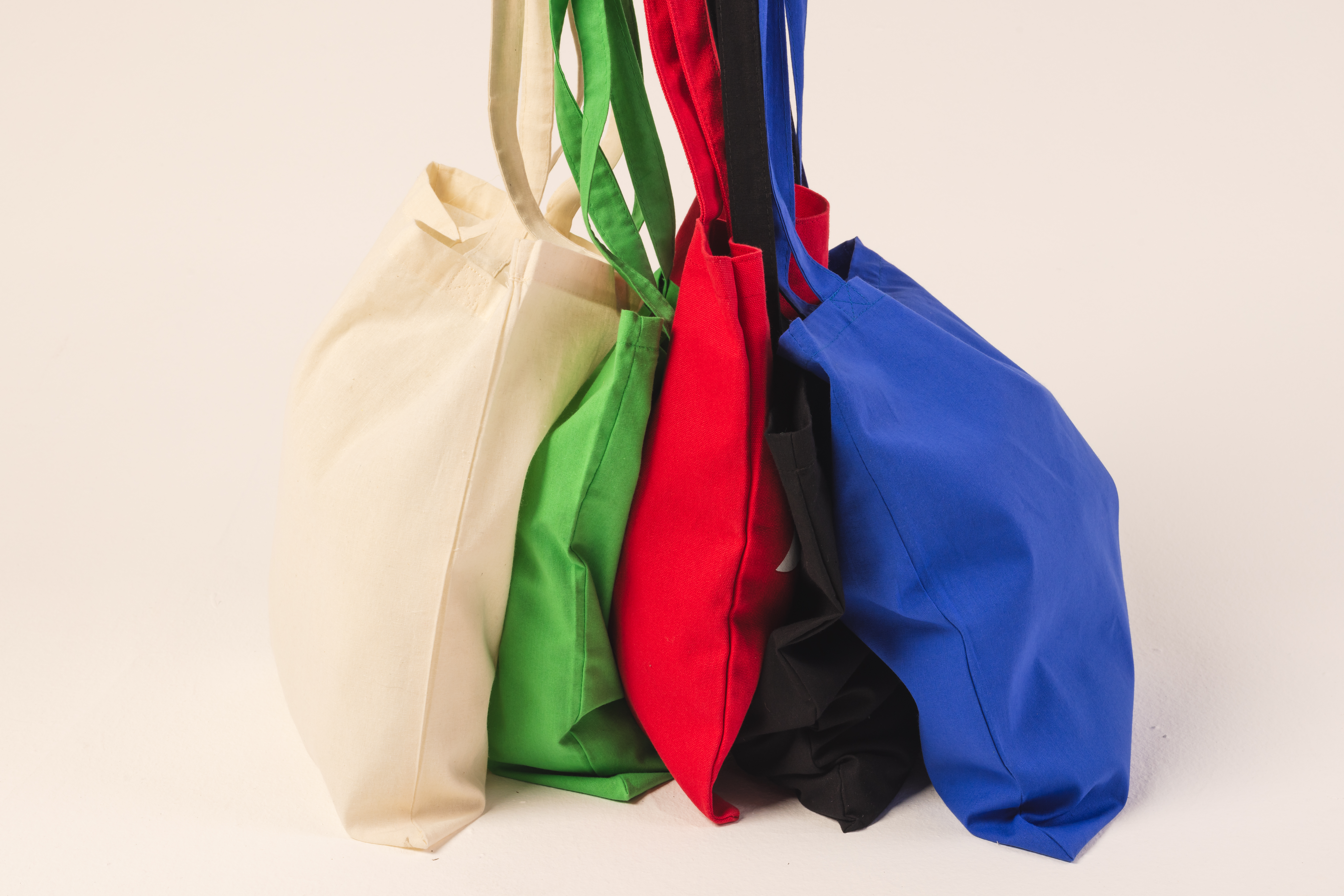A Guide to Sourcing American-Made Materials
In today’s fast-paced and increasingly global manufacturing landscape, sourcing materials locally has taken on a new level of importance. With rising tariffs, many businesses are turning to American-made materials for their soft goods products. Join us as we explore the benefits of sourcing locally produced fabrics and materials.
The Resurgence of Domestic Manufacturing
The last decade has seen a powerful resurgence of American soft goods manufacturing. Driven by evolving consumer values, global supply chain disruptions, and rising concerns over environmental impact, more brands are embracing “Made in the USA” as a core part of their identity. According to industry research, over 70% of U.S. consumers say they prefer to buy American-made products, and many are willing to pay a premium for locally manufactured goods.
Domestic sourcing not only aligns with consumer demand but also delivers tangible operational benefits:
- Faster lead times and improved flexibility.
- Reduced shipping and import costs.
- Greater control over quality and compliance.
- Transparency in labor practices and environmental stewardship.
At Softline Brand Partners, we partner with clients to build resilient domestic supply chains that offer reliability and differentiation in a crowded marketplace.
Sourcing American Textiles: A Legacy of Craftsmanship
Let’s take a look at the U.S. textile industry.
The U.S. Textile Industry at a Glance
The U.S. textile industry has a rich history, with many mills and factories that have honed their expertise over generations. Today, states like North Carolina, South Carolina, Georgia, Alabama, and Virginia lead the industry, producing everything from organic cotton to performance synthetics and technical fabrics.
Domestic mills have adapted to market shifts by embracing:
- Sustainable and ethical production practices.
- Advanced technologies such as digital printing and moisture-wicking innovations.
- Smaller minimum order quantities (MOQs) to accommodate both large and boutique brands.
Popular U.S. Textile Options
Here are some of the most common U.S.-produced textiles:
- Cotton – U.S.-grown cotton is prized globally for its purity and strength. The Southern states remain major producers of organic and conventional cotton fabrics.
- Wool – Regions like the Pacific Northwest and Midwest offer wool textiles with exceptional durability and warmth.
- Recycled and Sustainable Fabrics – Many American mills now take charge of developing fabrics from recycled PET bottles, reclaimed ocean plastics, and low-impact dyes.
- Technical Textiles – The U.S. is at the forefront of innovation in textiles, contributing to research into fire-resistant fabrics, high-performance knits, and moisture-wicking materials.
Certification and Quality
Many domestic mills hold certifications such as:
- OEKO-TEX® Standard 100: Assuring textile safety and sustainability.
- GOTS (Global Organic Textile Standard): Ensuring organic integrity from seed to finished product.
By partnering with reputable mills, brands can enhance their product story with verifiable claims around sustainability and ethical sourcing.
American Leather: Where Heritage Meets Innovation
Heritage and innovation collide when it comes to American leather.
A Tradition of Excellence
American tanneries are globally respected for producing some of the finest leather. From California to Texas to New York, these facilities often use time-honored methods alongside modern advancements to deliver superior materials.
Ethical and Environmental Benefits
American tanneries are required to follow the strict environmental and labor regulations set forth by the EPA and OSHA, leading to lower chemical emissions and improved animal welfare. Partnering with domestic tanneries gives brands confidence that their leather goods embody luxury, quality, and responsibility.
Domestic Hardware and Trim: The Finishing Touch
Why source U.S. hardware? Let’s take a look.
Why source U.S. hardware?
While textiles and leather form the foundation of any product, it’s the details like zippers, buckles, snaps, grommets, and buttons that bring functionality and style to life. U.S. hardware suppliers offer custom development options to create truly unique branded hardware.
Working with domestic suppliers also minimizes shipping delays and allows for easier design iterations.
Strategies for Success in Domestic Sourcing
Sourcing American materials comes with its own set of challenges, including higher labor costs and limited supplier availability compared to offshore options. However, with a thoughtful strategy, these hurdles can be overcome.
Here are some tips for building a strong, resilient domestic supply chain:
- Establish strong relationships: Communication and collaboration with your suppliers are key to ensuring quality and timely deliveries.
- Plan ahead: Lead times can still vary, especially for custom or specialty materials.
- Leverage design partnerships: Many domestic suppliers are eager to co-develop innovative products with clients.
- Diversify supplier networks: Avoid over-reliance on a single vendor by cultivating multiple relationships.
- Prioritize long-term value: Domestic sourcing is an investment in quality, ethics, and brand reputation.
At Softline Brand Partners, we pride ourselves on helping clients design smart sourcing strategies that balance flexibility, efficiency, and sustainability.
Why choose U.S. sourcing today?
The pandemic underscored vulnerabilities in global supply chains, accelerating a shift toward reshoring. Brands that adapt to domestic sourcing not only enjoy operational advantages but also appeal to modern consumers’ values around transparency, sustainability, and community support.
By sourcing American-made textiles, leathers, and hardware, you are:
- Reducing your environmental impact.
- Supporting fair labor practices.
- Investing in high-quality materials that elevate your brand.
Partner With Softline Brand Partners
At Softline Brand Partners, we’ve built a trusted network of domestic suppliers across textiles, leather, and hardware. Our experience navigating the intricacies of U.S. manufacturing allows us to guide your project from concept to production with confidence.
Whether you’re launching a new product line or transitioning existing operations back to domestic suppliers, we’re here to help you every step of the way. Contact us today to explore how we can help you build a more sustainable, reliable, and brand-boosting American supply chain.










